![]() — หน้าแรก — เกาะติดข่าว
— หน้าแรก — เกาะติดข่าว
ข่าวเศรษฐกิจและธุรกิจประจำสัปดาห์
-

Mandalay Region’s inflation rate is the highest in the country due to its status as a major trade hub in Myanmar
Mandalay Region’s inflation rate, at 11.53 percent, is the highest in the country due to its status as a major trade hub in the country, said U Myat Thu, Regional Minister for Planning and Finance. The region’s inflation rate based on the Consumer Price Index (CPI), which is calculated by the Central Statistical Organisation (CSO) under the Ministry of Planning and Finance, exceeds even Rakhine State, where inflation is 10.68pc and Magwe Region at 9.66pc. The annual average inflation rate in Myanmar is currently around 6.94pc. Among the factors that have an impact on inflation is the dollar-to-kyat exchange rate. Over the past year, the kyat has weakened substantially against the US dollar, making imports more expensive. On Monday, the weighted market exchange rate had fallen to K1523.9 per US dollar, compared to K1300 last year. As a major hub for traders from China, Mandalay sees high volumes of currency flows which have an impact on rising inflation. -
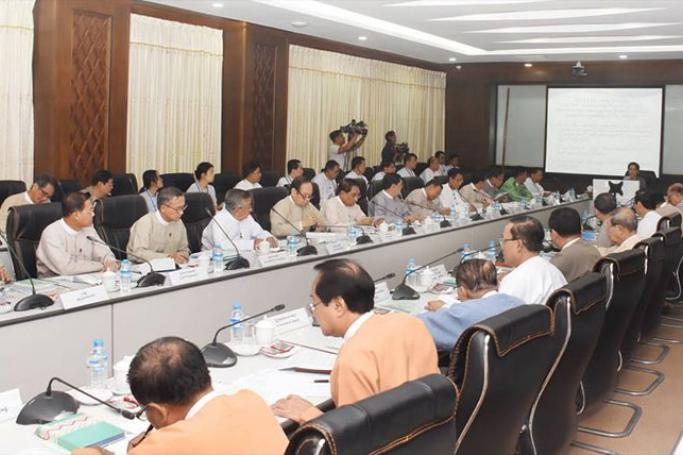
Belt and Road Initiative (BRI) would bring more opportunities to Myanmar and the region which can promote the development of the country and its people
The Belt and Road Initiative (BRI) could bring opportunities to Myanmar and the region, Myanmar State Counsellor Aung San Suu Kyi, according to a Xinhua report. At the first meeting of the steering committee for implementation of tasks relating to the China-proposed Belt and Road Initiative, Aung San Suu Kyi also stressed the need to work on the projects under the BRI in harmony with the country's national priorities and said that the welfare of the people will be counted while implementing the projects. The BRI could promote cooperation in all sectors including infrastructure, the state counsellor added. -
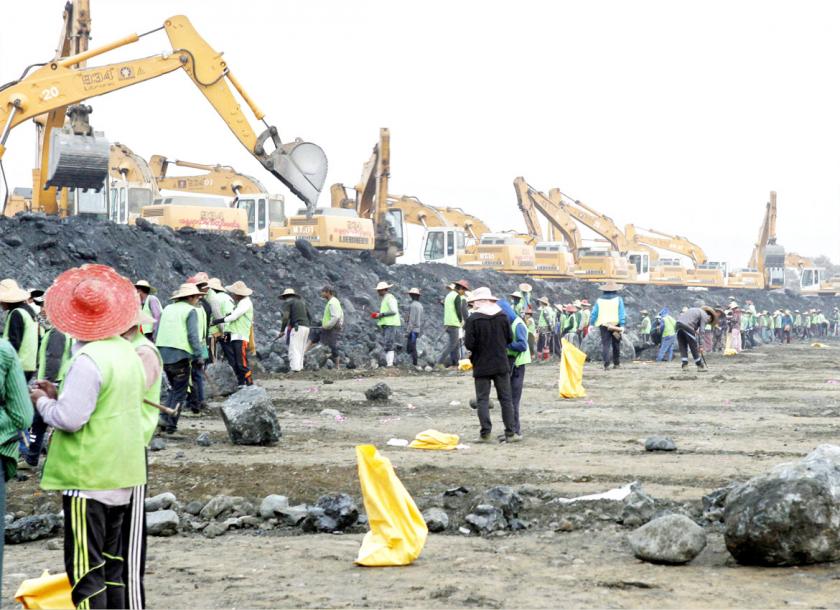
Permits for jade and gem mine blocks in Myanmar will be expired this year (U Thet Khaing, Deputy Director of Myanmar Gems Enterprise)
The permits for some jade and mine blocks in Myanmar will expire this year, U Thet Khaing, deputy director of Myanma Gems Enterprise has told The Myanmar Times. There are more than 5000 blocks across the nation and the permits for most are set to expire, he said. The Myanma Gems Enterprise under the Ministry of Natural Resources and Environmental Conservation has been issuing a list of expiring blocks since April 2016. The permits set to expire are for blocks in gemstone tracts in Hpakant, Lone Khin, Mogok, Hkamti, Nant Yar Seik, Mine Shu and Maw Lu-Maw Han. Extensions of permits for the blocks will not be allowed and the authorities will consider granting permits for new blocks in accordance with the law after the Gemstone Rules are in place, U Thet Khaing said. -
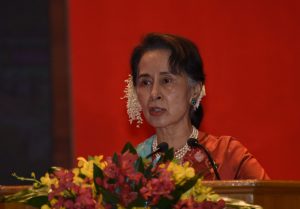
Its expectation are not shared by many in the private sector despite Government has evinced high expectations for rebound in foreign investment at Invest Myanmar Summit 2019
The government evinced high hopes for a rebound in foreign investment at a recent event in Nay Pyi Taw but its expectations are not shared by many in the private sector. THE GOVERNMENT tried hard to woo big spenders at the recent Invest Myanmar Summit, which focused on attracting foreign investment in about 200 projects altogether worth US$20 billion over the next 20 years, mainly in infrastructure development. State Counsellor Daw Aung San Suu Kyi delivered the opening speech at the event in Nay Pyi Taw on January 28 and 29, which saw an unprecedented turnout of 12 Union ministers, 10 regional ministers, and more than 150 regional and state representatives, and attracted nearly 1,600 participants. “I stand here to reaffirm our commitment to continue our reforms and build an investment-friendly environment,” she said. -
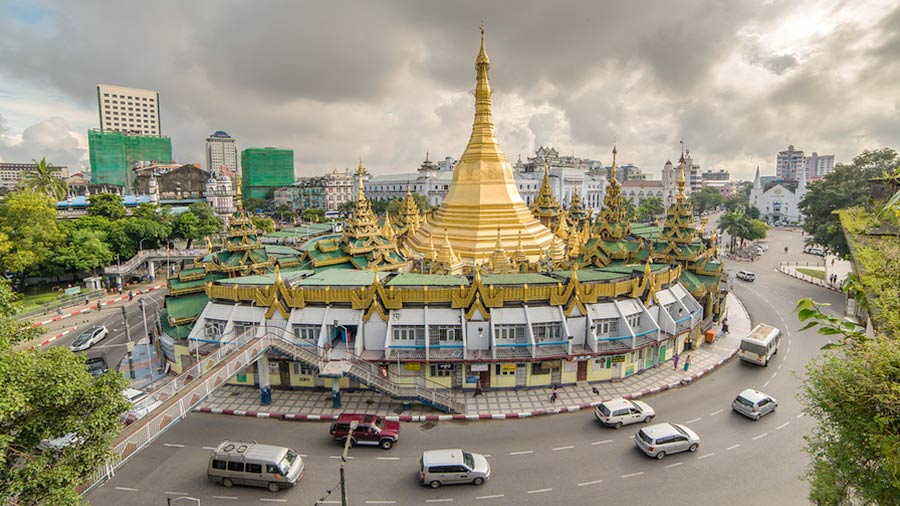
US investors are showing their interest in Myanmar as it's opened up and regulated several sectors of the economy such as banking and finance, and education
US investors are showing interest in Myanmar following recent efforts to open up and regulate several sectors of the economy, such as banking and finance, and education. Last Thursday, US Ambassador to Myanmar Scot Marciel met with businessmen from the Union of Myanmar Federation of Chambers of Commerce (UMFCCI) to discuss potential investment opportunities available to US businesses. The US has already sent delegations to Myanmar to review opportunities following the recent slew of reforms in the banking and finance sector, according to the UMFCCI. On November 8, 2018, for example, the Central Bank of Myanmar announced that it would allow branches of foreign banks in the country to offer financing for local businesses and operate other banking services as well as expand. -
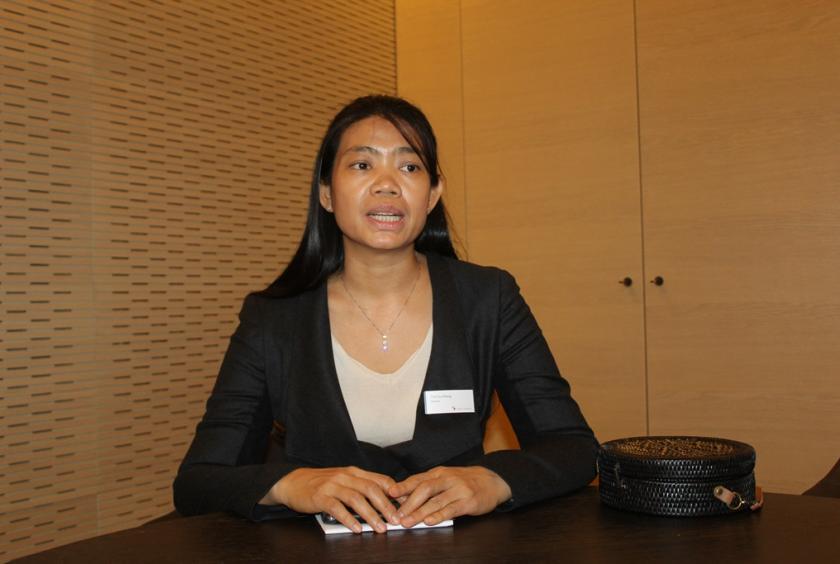
Myanmar firms should find proper ways to export to overseas markets with the potential to produce quality products
With the potential to produce quality products, local businesses in Myanmar should not be content with the domestic market only and should find proper ways to export to the overseas markets, according to a market expert. Thet Su Hlaing, official representative of Messe Frankfurt Exhibition GmbH for Myanmar, said in an interview that a lot of Myanmar companies have the capacity to expand overseas but are still reluctant to do so due to a lack of self-confidence. “We have found out through our extensive study on this market that a great number of local businesses are able to export quality products that meet international standards, but they are quite satisfied with their market shares domestically,” she said. “As a representative of Messe Frankfurt, we are now working tirelessly to encourage them to expand their businesses beyond Myanmar. We strongly believe they can do it, so we are pushing for that.” -
Central Bank of Myanmar (CBM) will allow foreign fully owned banks to operate in Myanmar by the end of 2020
Central Bank of Myanmar will allow fully owned foreign banks by the end of 2020. “We will allow foreign bank as a subsidiary if they want to operate here as a fully owned foreign bank. We have issued a statement on this and will announce the details of the terms and conditions for them. In international practices, a subsidiary can operate in the same way local banks do,’’ U Bo Bo Nge, Vice President of Myanmar, said. Central Bank is considering allowing subsidiaries based in the country, but directly managed by the mother bank instead of allowing foreign bank branches. -
Ministry of Education will collaborate with economic sector in order to nurture skilled labor for local and foreign investments
The Minister of the Ministry of Education said his ministry will work with the economic sector in order to nurture skilled labor for local and foreign investments. The meeting was held on February 2 at UMFCCI between members, experts, and local businessmen. The Minister said, “Only when we can effectively connect the two sectors together, will our pool of available workers improve into a skillful and qualified workforce. I believe that private sector will collaborate with us on this matter.” The two sectors will collaborate on educating young people, from primary education to higher education, and work together towards a skillful and qualified labor force. by creating technological and vocational training schools as well as providing non-formal education. One example of non-formal education is a mobile school like myMe Myanmar Mobile Education Project. This is a project that has a bus outfitted with a classroom, and brings the school directly to where children work and live. -
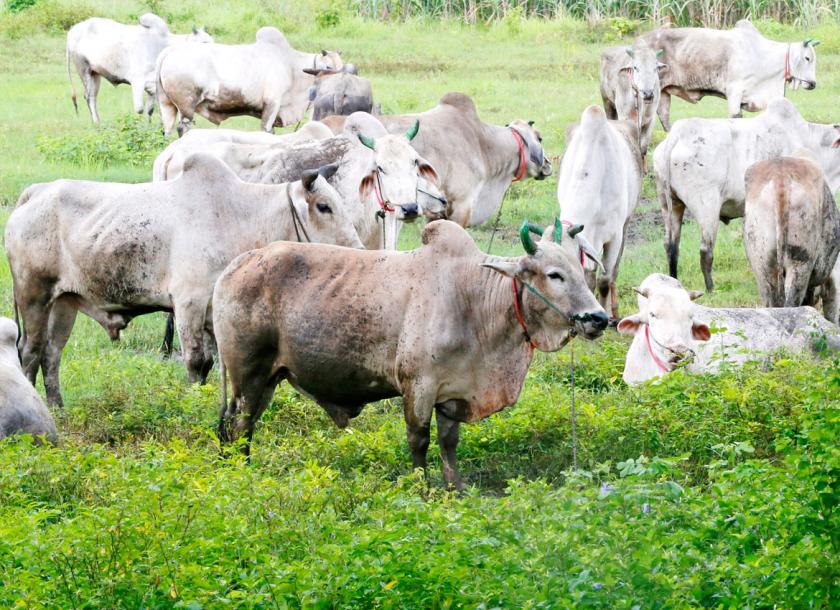
Myanmar and China authorities will be signed a bilateral agreement for trading cattle at the border area due to the high demand from China
With Chinese demand for cattle on the rise, Myanmar and China will soon sign a bilateral agreement for trading cattle at the border, U Khin Maung Lwin, assistant secretary of the Ministry of Commerce (MOC), told The Myanmar Times. An agreement to start an official barter system for cattle between Myanmar and the Yunnan Province government in China will soon be signed. The barter system is a trading mechanism under which exports and imports are officially recorded and legalised. Currently, China does not officially allow imports from Myanmar. This will be followed by a second agreement on matters related to the General Administration of Quality Supervision, Inspection and Quarantine of the People’s Republic of China (AQSIQ), which is required for exporting cattle, between the China’s Ministry of Commerce, the MOC and the Myanmar Veterinary Department under Ministry of Agriculture, Livestock and Irrigation (MOALI). -
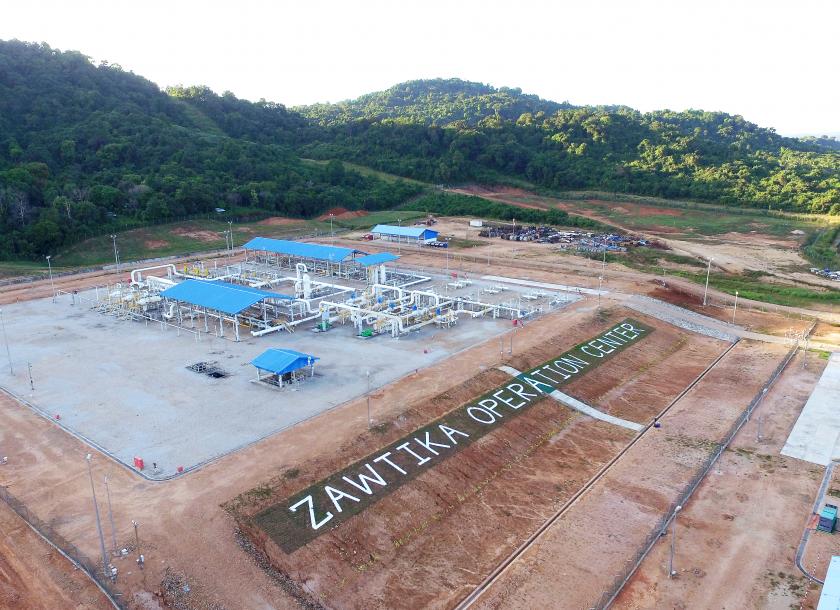
PTT Exploration and Production (PTTEP) raised investments in Myanmar offshore projects to maintain gas production
Since 2014, a total of 345 million cubic feet of natural gas for daily domestic consumption and export to Thailand is channeled from the offshore Zawtika Project in the Gulf of Moattama to the Zawtika Operation Center (ZOC) in Kanpauk Township, Tanintharyi, said Mr Piya Sukhumpanumet, general manager of PTTEP Myanmar Assets. Natural gas, which is produced at the Zawtika field at Block M9, is being processed at the Zawtika Platform Quarter Complex at the project site and transferred via a 230-km subsea pipeline to ZOC. Located approximately 300 kilometres south of Yangon, the Zawtika gas field development project is being developed by Thailand’s PTT Exploration and Production Public Company Ltd (PTTEP). The company also owns an 80 percent stake in the project, while state-owned Myanma Oil and Gas Enterprise (MOGE) owns the remaining 20pc. A production-sharing contract was signed in 2003 and gas was discovered at M9 in 2007.
เกาะติดข่าว
Copyright © 2014 Business Information Center All Rights Reserved.







